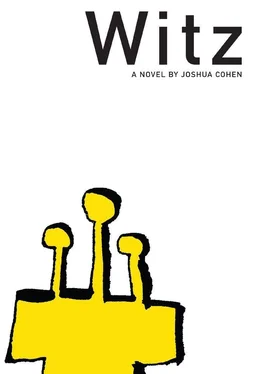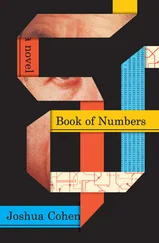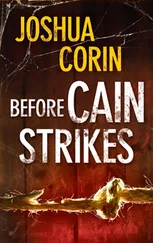In one of our many pious books, we are told the following:
One should not stack books of a lesser holiness atop books of a greater holiness.
Tellingly, in another one of our pious books this dictum is turned on its head — in a story:
A rabbi stacked a book of the Talmud atop a book of the Torah. Another asked him, Why are you doing that? And the rabbi answered him, In order to preserve the book of the Torah, because by covering it with this I will save it from the dust and the ashes that might fall upon it.
Regardless of which one follows, the book you are holding now should, when stacked, always be placed in the middle.
This book you are about to read contains no holy words or letters, neither words nor letters in the Holy Tongue, and nowhere within it are mentioned any of the many names of God.
Therefore, this book may be ripped or torn, burnt, otherwise destroyed, and whatever remains require(s) no burial.
“ ”
— God
DEADICATED
to mine enemies,
without whom none of this would have been possible
and Thy write hand shall save me…
Witz:
being, in Yiddish, a joke;
and, as the ending of certain names,
also meaning son of:
e. g. Abramowitz,
meaning son-of-Abram
(also found as — wic, — wich, — wics, — wicz, — witch, — wits, — wyc, — wych, — wycz, — vic, — vich, — vics, — vicz, — vitch, — vits, — vitz, — vyc, — vych, and — vycz).
IN THE BEGINNING, THEY ARE LATE.
Now it stands empty, a void.
Darkness about to deepen the far fire outside.
A synagogue, not yet destroyed. A survivor. Who isn’t?
Now, it’s empty. A stomach, a shell, a last train station after the last train left to the last border of the last country on the last night of the last world; a hull, a husk — a synagogue, a shul.
Mincha to be prayed at sundown, Ma’ariv at dark.
Why this lateness?
He says reasons and she says excuses.
And so let there be reasons and excuses.
And there were.
A last boat out, why didn’t they catch it? They didn’t have their papers? their papers weren’t in order?
He says excuses and she says reasons.
And so let there be excuses and reasons.
And there were, if belated.
Misses Singer strokes her husband’s scar as if to calm him. But what she calls a scar he knows is his mouth.
Late because they’re stuck in one exilic fantasy or another; late because the adventure of ingathering doesn’t seem all on the up and up; late because they’re owed payments, and you’re goddamned right they’re going to collect…what’s yours? I’m just waiting for this one deal of a lifetime to come through, and, when it does, God! the moment it does, you’d better believe I’m out of here…
Singer stops, stoops to pick up a shoe, sized wide, fallen from his withered foot last step.
Nu, it’s been like this ever since he was born, and those long, hard years have all been as yesterday’s toll: the bridge crossing, the bottomless price of a boat full with holes, an aeroplane cast down from heaven, betrayed of its wings. And it’s not as if he hasn’t crawled his end of the bargain: wriggling ever forward from garden to grave, he’s trying, just ask him; if he hadn’t married so well, he’d have to gnaw down a branch for a cane. And then what: you pray for a splinter, you get a tree in return, from whose flesh is made paper and from whose fruit is sucked ink, both of which collaborate in God’s writing of Laws whose words and even the letters of which bless you beholden to meaning; and so we receive knowledge, such as the following, and the preceding, and this: in seeking only to stay upright, you fall, are banished then cursed and reviled, condemned to wander a continent you don’t even know where you’re going, only when you’re expected, which is every Friday at sundown though your calendars were never coordinated and what you always thought had been west was really only a left turn taken with your back to the north, in haste and with little sleep, then upon your forehead, the development of a worrying mark.
A meal after Shacharit, which is the prayer of the morning, praising God Who made the light only by saying it illuminating, also, our own saying of thanks to Him for not making us unto them — the animals, women, or sick; for not yet giving us over to the darkness of death — shadows that have no souls for which to pray if even they could, as they lack both voices and hearts, shuffle their bloated, crapulous ways into shul: Unaffiliated, jingjangling keys — there couldn’t be! that many doors…goyim nameless faceless nearly formless, quiet massing hulks emerged out of dim wet here to make a living that’s more a dying. It’s strange, no one understands: they’re here to help, not destroy. Be calm. One sweeps up; another sweeps the seats for articles and personal effects left behind, by night. Yet another stacks books on the almemar, shoves them, balled up crumpled wet, into pew pockets, lays them out on seats swept toward the rear, nosebleed territory from which the Shammes groans in with an enormous what hath God wrought iron key, looped on a rope around his waist, hanging low under his gut, swinging with his stride — which is as long and wide as the last night he’ll spend here, free, unconcerned.
Hours later when hours were still hours as restful and lit as all Sabbath’s day, not the binding celestials of numeral and ordinal, the narrow gauge of comet trains, stardeadline, failing, falling, the tickers of arrival and departure and arrival, diurnal again — the clock centerpieces upon our timetables that not only remind us when to partake but are, simultaneously, the only sustenance left — the Affiliated muster, assemble outside…soon, there’s a congregation beyond: nondenominational, because what does observance mean anyway, irreligious maybe even, or all of them heaped together, thrown atop the burning pile, who knows, with the languages who can tell? Their bloods are their tickets, purchased at a steep price or a long song much in advance. Presence by the pint. They lineup two-by-two, two of each kind, husband and wife. They’ve restedup, washedup, dressedup; they’ve reported for showers and were shorn. There’s last summer’s rose attar, perfume stagnant in air — or it’s smoke, strangely sweet…
Menschs bow down by the curb, bow at the knees and cast fingers, fish around in last regime’s grates and late afternoon’s puddles for anything that’s not yet blown away: loose pages, blots of blatt, daf stains, yellowed newspapers the print of which’s run off to tomorrow with yesterday’s wife, scraps of rag, parchment or is it just skin, God, it’s skin. As a handful of the oldest menschs bow, they fall, are then helped back to their feet by menschs only slightly younger, each of them by another younger by just a wink or a wrinkle, they’re righted, and so now they’re ten altogether, which makes us a minyan. Runoff is wrung out from these yarmulkes, mud knuckled away with spit. The menschs gather these scraps, spread them on glassy bald skulls with thumb’s knife, against the gusts at the doorway, as if they didn’t have these frags and parches, corking it All down, their heads would spill out to the sky. And its vault. Never forget the vault. Windily, they kiss at the jamb, which is marked. An Unaffiliated at the door hands out books, programs inside, both also pressed into yarmulkes.
Yellow over red to brown over black if I’m squinting it right, I don’t have my glasses on me just now, comes to west through the windows. Then, Let there be light , and there is light and if not good, then so-so — eh, though you might prefer feh. It’s not theirs, though: insight is forbidden to the assembled, at least here, and what they seek in their own homes, hosting ruin just past the horizon, and on their own time, which is almost up, is absolutely none of our business. Two lights becoming one becoming two: the Shammes has lit candles, flame, but the fire’s outside. The stainedglass remains dark. The floor’s a mess: remnants of flowing tracery, shards of leaded panes from the windows lancet and rose, long replaced or walled up due to heating costs; pews’ rubble heaped to the side, seating’s splinters, scrapped immature limbs — for use in stoking the furnace.
Читать дальше












